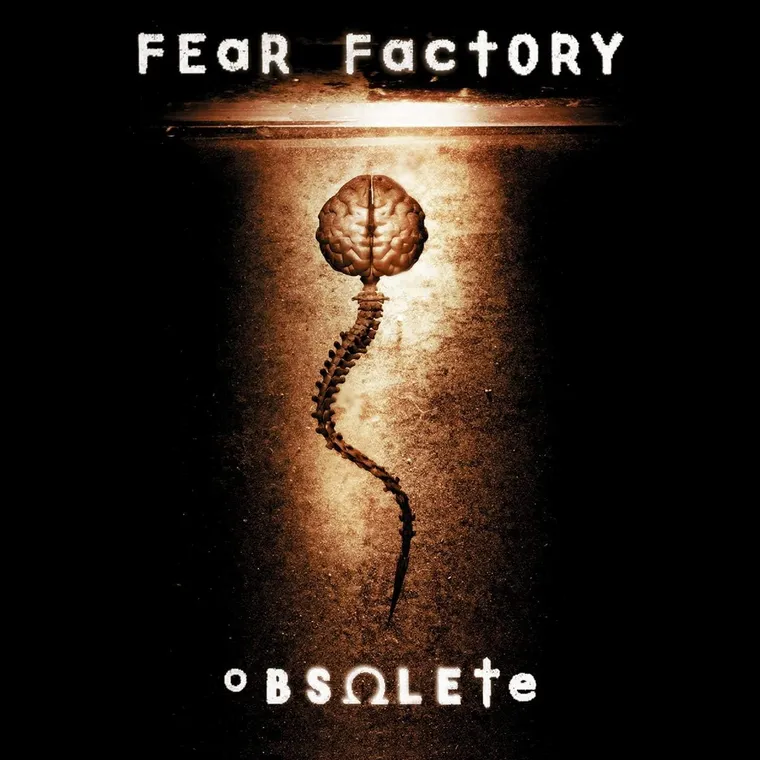Released on July 28, 1998, Obsolete is Fear Factory’s defining statement—an album that fused dystopian narrative, industrial aggression, and cyber-metal precision into a concept-driven masterpiece. Building on the foundation of Demanufacture, Obsolete brought deeper grooves, more layered songwriting, and a sharpened sense of atmosphere. This wasn't just a follow-up—it was an evolution of sound, vision, and intent.
At its core, Obsolete is a concept album about man versus machine, set in a future where humanity has been rendered redundant by the systems it created. But Fear Factory didn’t just write about this world—they sculpted it sonically. Each track is a piece of a larger puzzle: cold, mechanical riffs clashing with very human rage and despair.
In an era when nu-metal was peaking and industrial metal risked becoming self-parody, Obsolete cut through with weight and purpose. It was heavy—but smart. Digital—but emotional. This album didn’t chase trends—it engineered its own.
Steel, Suffering, and Structure: The Concept Unfolds
“Shock” opens the record with a controlled detonation. It’s an immediate assault of machine-gun drumming, detuned riffing, and Burton C. Bell’s signature blend of growled verses and soaring choruses. It sets the tone: resistance is brutal, but it sings.
“Edgecrusher” follows with a grinding, hip-hop-inflected beat and defiant vocals. It’s the sound of rebellion in the rubble, fusing groove metal with industrial grit. Bell’s chant of “I’m the edgecrusher!” is both personal and prophetic—this is metal fighting back against conformity.
“Smasher/Devourer” hits like a factory piston—pounding, precise, and terrifyingly efficient. Dino Cazares’s guitar work is a blueprint in rhythm-based aggression, while Raymond Herrera’s drum programming mirrors the mechanized violence of the album’s theme.
“Descent” brings a surprising dose of melody. It’s moody and cinematic, showing a more introspective side of Fear Factory. The clean vocals take the spotlight here, layered with synth textures that expand the sonic scope without losing intensity.
Gears, Grooves, and Ghosts in the Machine: The Depth Expands
“Hi-Tech Hate” is a mid-tempo stomp through digital warfare and ideological collapse. The lyrics are bleak, but the riffing is rich—blending thrash precision with industrial repetition in a way that’s punishing but hypnotic.
“Freedom or Fire” ratchets the tension higher. It’s a relentless track, full of pulse-racing rhythms and militarized vocals. Bell’s delivery is furious, but never without clarity—there’s meaning in the maelstrom.
“Obsolete,” the title track, slows things down to a crushing, doomy crawl. It’s heavy in a different way—thick, suffocating, and oppressive. This is the emotional low point of the album’s story, and the band captures it with suffocating heaviness.
“Resurrection” is the album’s most emotional moment. Clean vocals dominate, backed by ambient electronics and mournful guitar leads. It feels like hope in the ashes—a song about rebirth, defiance, and the last gasp of human spirit.
“Timelessness” closes the album with haunting piano, whispered vocals, and a ghostly atmosphere. It’s not a climax—it’s an epilogue. The war is over, the damage is done, and something tragic lingers. It’s a brave, minimal ending that contrasts the mechanical chaos that came before.
Powered by Precision: Performance and Production
Burton C. Bell delivers a career-best performance on Obsolete. His dual vocal approach—harsh growls countered with clean, melodic lines—became a Fear Factory hallmark, and nowhere is it more effective than here. His voice is both the scream of the machine and the cry of the human underneath.
Dino Cazares’s guitar tone is mechanical perfection—tight, downtuned, and rhythmically complex. He doesn’t shred—he stomps, like an army of metal limbs. His riffs drive the narrative like gears in motion.
Raymond Herrera’s drumming, both organic and programmed, is flawless. Every beat is meticulously placed, mirroring the album’s themes of automation and control. Few metal albums sound this locked-in without sounding sterile—and Herrera walks that line masterfully.
Christian Olde Wolbers’ bass work adds weight to every track, filling the space between guitar and drums with dark, percussive energy. His role may be less flashy, but it’s essential to the album’s oppressive density.
Produced by Rhys Fulber and Greg Reely, Obsolete sounds massive. Every layer—drums, guitars, samples, vocals—is balanced with surgical precision. The production is icy and clinical when it needs to be but always leaves room for emotion to bleed through.
Final Verdict: 9.5/10
Obsolete is a landmark album—not just in Fear Factory’s catalog, but in modern metal. It takes the aggression of death metal, the precision of industrial, and the introspection of alternative and fuses them into something futuristic and frighteningly real.
Decades later, its themes of control, dehumanization, and resistance feel more relevant than ever. This isn’t just a heavy record—it’s a warning wrapped in distortion and steel. Obsolete proves that even in a mechanized world, music can still punch you in the chest.

